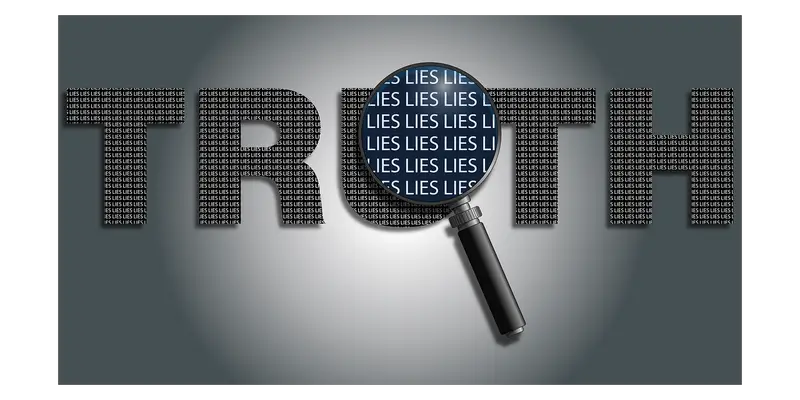
Buying a property is stressful enough, but it can be even more stressful if you start to worry about house sellers lying to you. If you are asking the question can house sellers lie, but more importantly if you are also looking for ways to protect yourself from the most damaging lies about a property, this article should help.
The aim of this article is to highlight the types of house seller lies. Plus how best to avoid the pitfalls buyers can fall into as a result of not uncovering house seller lies when buying property. But if after reading this article you have further questions about can house sellers lie, please post a question in the comments below.
House sellers often lie with the biggest percentage lying about neighbour disputes, which is one of the hardest lies to uncover and protect against. Buying a house when the seller has a dispute with a neighbour doesn’t always mean you shouldn’t buy, but knowing is key so you make the right decision.
Please also read this article to discover how you could save £71,475 on your next mortgage if you sell your house and rent before buying again. Even I was amazed when I did the calculations! The strategies you learn in this article will not only save you money, but it will also reduce the stress of buying your next house.
There is an important document that sellers complete during a property conveyancing, which is the Seller Property Information Form (SPIF) or TA6 Form. This form is designed to extract important information about a property from the seller. But that doesn’t mean the information they put on this form is truthful.
To find out more about what this form includes, and what questions are asked of sellers, please take a read of this article “Seller Lied On Property Information Form“. This article includes information about what questions are on the SPIF.
With that said, let’s have a look at what sellers can lie about on the Seller Property Information Form.
What can sellers lie about?
There are a number of things about a house that sellers can lie, which include:
- Lying about disputes with neighbours.
- Lying about a flood that happened.
- Hiding problems with damp.
- Not disclosing subsidence.
- Not disclosing a Japanese Knotweed problem.
- Not correctly disclosing alterations to the property.
- Lying about boundary ownership.
- Not disclosing any notices received.
- Misrepresenting guarantees or warranties.
- Lying about insurance.
- Lying about energy performance.
- Lies about rights and informal arrangements.
- Lying about parking arrangements.
- Failing to disclose other charges.
- Failing to disclose occupiers of the property.
- Lies about electrical installations and testing.
- Lying about connections to utilities and services.
- Lying about being chain free.
That’s a long list of things that house sellers can lie about, so let’s now look at how you can protect yourself from most of these house seller lies.
1. House seller lying about disputes with neighbours
It’s easy for sellers to lie about neighbours and disputes they have with them, and it’s up to you with help from a solicitor to uncover any lies about neighbours. If you’re worried about a seller lying about neighbours, speak to other homeowners on the street to ask if they are aware of disputes.
If the seller does not disclose a known dispute on the Seller Property Information Form, the seller could be liable for damages under the Misrepresentations Act.
But it’s far better to find out before buying a house if the seller is lying, and thereby avoid and legal claims with a seller. There are no guarantees you will will against a seller for lying, and once you purchased the house, you may be stuck with the same neighbour dispute.
Finding out what type of neighbour dispute will help you decide if the same neighbours will give you a similar problem. For example, if the dispute is over boundaries, the boundary dispute could be resolved during the conveyancing process. This way you not only resolve the dispute, but you also get off to a good start with your new neighbours.
However, if it turns out your potential neighbour is a bad neighbour and one who is out to cause problems with whoever lives next door, you would want to know this. A problem of this nature may stop you from buying the house. If this is the case, the seller may be running away from the problem, and have very good reason to lie about the dispute.
If the neighbour dispute is recorded or has been notified to the authorities, the seller is legally obliged to notify buyers of the dispute.
As part of your due diligence, and in addition to speaking with other homeowners on the street, I suggest you go to the local council offices and make enquiries about whether any disputes exist over this house with neighbours nearby.
It is far better to find out before you buy a property, as it will cost you far more afterwards if you make a mistake. The old adage “Act in haste and repent at leisure” has its place with buying property.
2. House seller lying about a flood that happened
If a seller has lied about a past flood at the house, it depends on the type of flood if it affects your purchase, and the type of flood will also decide house easy it will be to uncover as a lie.
- Lying about a river flood: If the house is on a flood plain this is easy to research, and this information will be disclosed on the environmental searches*. But also, it’s usually very easy to research whether an area has suffered in the past from a surface water flood from nearby streams or rivers by doing a simple internet search. Search using: “Has XXX town flooded in the past” will normally be enough to bring up any past floods. If the flood was bad enough to affect properties, it will be reported.
- Lying about coastal flooding: Coastal flood risks should get picked up on the environmental searches, but you can also do your own research on the internet to discover if the area has suffered from coastal flooding in the past.
- Ground water or sewer water flooding: If the seller lies about a flood that happened as a result of a problem with the sewers or from ground water, this may be more difficult to research, as this type of information may or may not be on the environmental searches. If the groundwater flood was caused by large subterranean aquafers, this might be disclosed, but if it was due to a blocked drain on the property, this won’t be. But this isn’t as bad as a river or coastal flood, as it’s far easier to have this fixed if it happens again, albeit that it will cost money.
* If you are buying with a mortgage vs as a cash buyer, your lender will insist on having searches done, which protects the bank against any adverse searches. But in any event you should always agree to have searches done by your solicitor, even if you are a cash buyer.
3. House seller hiding problems with damp
It is possible to hide damp in a property, but so long as you pay for a detailed property survey, any damp problems should be picked up on the surveyors report.
If the surveyor doesn’t find the damp problem as a result of the seller hiding the damp, this means that either the damp isn’t that bad and should be easy to fix, or it means the surveyor did a bad job and may be liable for their error. You may like to read this article about “Should you buy a house that has damp“. This article looks at the types of damp a property may have and the decision you should make with each type of damp.
4. House seller not disclosing subsidence
If a seller doesn’t disclose subsidence, this should be picked by on a survey. So unless you are a builder, or you ask a builder to check the property for subsidence, it is worth paying for a survey on the property. If a seller has claimed on their buildings insurance for a problem with subsidence or settlement, this might also show up as an increase in premiums (see below).
5. House seller not disclosing a Japanese Knotweed problem
If a property has a problem with Japanese Knotweed, this should be disclosed on the Seller Property Information Form, even if it is being treated. But if the seller lies about Japanese Knotweed, you can only hope that this will get picked up with the house survey.
If the Japanese Knotweed is still live it is more likely to be picked up, as it will be visible to a surveyor who knows what to look for. But if the Japanese knotweed has been treated, it may not get picked up. However, if the knotweed problem has been treated you may not have a problem with buying the property in any event.
6. House seller not correctly disclosing alterations to the property
Any major alterations done to a property, including extensions to the property, loft or garage conversions and removal of internal support walls should be properly disclosed by sellers on the SPIF.
However, if these are not disclosed you can check this information by looking to see if the property is different to what is shown on the title plans at Land Registry. You can also check the planning portal for any planning permissions submitted.
It is important if a house has been altered in a major way that building control has been complied with. If it hasn’t you may get problems in the future. If the seller has lied about alterations, but you discover that alterations have been made by the seller, you need to obtain building control certificates. If these are not available, don’t buy the house until they are provided.
7. House seller lying about boundary ownership
The ownership of boundaries is important to understand as the homeowner will be responsible for the cost of repairing these in the event they fall down in strong winds or when they need replacing as they decay.
Often times the ownership of boundaries is marked on the title plans for houses. You should get your solicitor to confirm these are in accordance with what the owner has confirmed on the Seller Property Information Form.
It’s not the end of the world if the seller has lied about boundaries, but it is important you know before you buy which boundaries you will own and be responsible for, as boundaries are where disputes between neighbours can arise.
8. House seller not disclosing any notices received
Any notices the seller has received from neighbours or the council or government departments should be disclosed as part of the Seller Property Information Form disclosure. It isn’t easy to uncover this type of disclosure if the seller is prepared to lie about it.
But as part of your research into the house, you could speak with neighbours to see if they have sent any notices to the sellers. You could also visit the council offices to ask if any notices have been sent to this property or any of the other properties on the street. The details of the notice may also show up on the searches too if it is important, which is something you should always pay to have done.
9. House seller misrepresents guarantees or warranties
If a seller misrepresents or lies about guarantees or warranties, this will be quite easy to resolve, as you should always ask to see originals of any guarantees or warranties the seller has on things like damp proofing, timber treatments, electrical work, under pinning, roofing, Japanese Knotweed, central heating and windows or conservatories.
10. House seller lying about insurance
If a seller lies about problems with insurance, this will be quite easy to resolve, as you should always ask to see originals of insurance documents.
You will be looking for the seller to disclose claims on buildings insurance, which would include any insurance claims for subsidence.
You are also looking for disclosure about home insurance and details of any unusual conditions or if insurance has been refused. You should also look for any high insurance excess or if the insurance is subject to an abnormal rise in premiums too.
11. House seller lying about energy performance
It is very easy to confirm if a seller is lying about a house’s energy performance by requesting sight of the Energy Performance Certificate (EPC). It is a legal requirement for anyone selling a property to have an up to date EPC done.
12. House seller has lied about rights and informal arrangements
You are reliant on a seller to confirm details about rights and informal arrangements, which can include if ownership of the property carries a responsibility to contribute towards the cost of any jointly used services, such as maintenance of a private road or unadopted road, a shared driveway, a boundary or drain.
Also if the property benefits from any rights or arrangements over a neighbouring property, or if there are any services cross the property or neighbouring property you need to know.
Most of this information should be picked up by a good conveyancing solicitor, as much of this will be in the legal paperwork. But in addition to the work your solicitor does, you can always ask neighbouring homeowners questions about any information arrangements that exist with the sellers of the house you intend to buy.
13. House seller lying about parking arrangements
Parking is something that is extremely important to homeowners, and something which neighbours can fall out over and get into a dispute. Normally it is quite obvious what parking is owned by a property, but if there are any doubts it’s better to check this.
Disputes often arise with houses situation on private roads, but details of the rules on the private road will be picked up by the conveyancing solicitor. However, what won’t get picked up is disputes over parking and problems that exist over parking arrangements.
The best way to resolve this if you have any concerns is to speak with the owners of neighbouring properties to confirm if any problems or disputes exist over parking.
14. House seller failing to disclose other charges
You are reliant of the seller disclosing other charges the house is subject to, which might include payments made to management companies. However, it is unlikely for a charge of this nature to exist and not to get picked up in the conveyancing process.
15. House seller failing to disclose occupiers of the property
It is important to know who resides in the property you are buying, as in most cases you will want vacant possession when you complete the purchase. In most cases this is never a problem, but if you are in any doubt make sure this is dealt with by your solicitor.
One way to guard against a problem with confirming vacant possession is to carry out a final check prior to exchanging contracts.
16. House seller lying about electrical installations and testing
It is a good idea to have the electrics tested on a property you are buying, or get confirmation from the seller they have had the electrics tested. If the sellers are lying about the electrical installations or the testing they’ve had done, this can easily be checked by asking for copies of the checks.
If the seller cannot provide copies, or if they cannot confirm the electrics have been tested, it may be worth you paying for this test. Any remedial work that results from the electrical test will be a matter to negotiate between you and the seller.
17. Sellers lying about connections to utilities and services
Lies by sellers about connections to utilities and services are easily uncovered by asking to see bills for the relevant services.
18. Sellers lying about being chain free
Sellers sometimes lie about being chain free when they are not. The term “chain free” means the seller doesn’t need to buy a new property for them to sell their current home.
If you want to read more about this subject, please take a look at this article: Lying About No Onward Chain + Seller Lied About Being Chain Free. Included in the article is information about the legal position if a seller lied about being chain free.
Final thoughts about can house sellers lie
If at any stage the sellers are proving difficult or refuse to provide information about questions asked, be careful about ignoring their reluctance to help. If a seller is lying about the house, it’s likely that the sellers will be more difficult and are more likely to avoid answers questions that ordinarily would be easy to answer.
For example, if they are not able to provide copies of guarantees or warranties on works done to the property, you should question whether the work was done at all or if the work was done to a sub-standard.
If necessary, ask a survey or a builder to check the work, but if the seller refuses to allow these checks, you should walk away from the property, or renegotiate the purchase price.
Also, use your gut feeling about the sellers from when you met them at the first viewing. Normally your gut is right about people.
Please don’t forget to read this before you leave…
Please don’t forget to also read this article to discover how you could save £71,475 on your next mortgage if you sell your house and rent before buying again. As I said earlier, even I was amazed when I did the calculations! Learn about how you will reduce the stress of moving house, whilst at the same time potentially save thousands in the process!
I hope you’ve enjoyed this article about can house sellers lie
f you’ve enjoyed this article about “can house sellers lie” please share it on your favourite social media site.
Also, if you have any questions, please feel free to comment below too. Please also share any of your experiences with properties you’ve bought. Alternatively, if you need more help, please feel free to contact us on our contact us page here. Or join the discussion and ask your question in the property forum.




